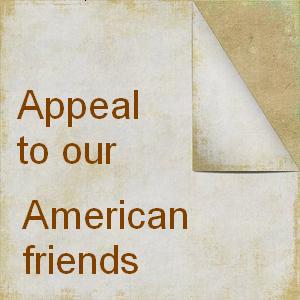 The Dutch parliament has passed a bill banning the slaughter of livestock without stunning it first, removing an exemption that has allowed Jews and Muslims to butcher animals according to their centuries-old dietary rules.
The Dutch parliament has passed a bill banning the slaughter of livestock without stunning it first, removing an exemption that has allowed Jews and Muslims to butcher animals according to their centuries-old dietary rules.
Amsterdam - The Dutch parliament has passed a bill banning the slaughter of livestock without stunning it first, removing an exemption that has allowed Jews and Muslims to butcher animals according to their centuries-old dietary rules.
If enacted and enforced, religious groups say observant Jews and Muslims would have to import meat from abroad, stop eating it altogether, or leave the Netherlands.
However, the bill must still pass the Senate, which is unlikely before the summer recess, and the Cabinet said on Monday the law may be unenforcable in its current form due in part to ambiguity introduced in a last-minute amendment.
If the Netherlands outlaws procedures that make meat kosher for Jews or halaal for Muslims, it will be the second country after New Zealand to do so in recent years. It will join Switzerland, the Scandinavian and Baltic countries, whose bans are mostly traceable to pre-World War 2 anti-Semitism.
In New York, the Anti-Defamation League condemned Tuesday's vote in the lower house, with its national director, Abraham H Foxman, calling it “a de facto ban on kosher slaughter” that “has repudiated the Netherlands' historic commitment to religious freedom”.
“Dutch Jews must not be put to the choice of violating a central tenet of Judaism, foregoing fresh meat, or emigrating. We call upon the Dutch Senate to prevent this action from leading to a clear violation of religious freedom that has a disproportionate impact on the Jewish community,” Foxman said in a statement.
Dutch Deputy Secretary of Economic Affairs and Agriculture Henk Blekers said: “The Cabinet will give its judgment over the proposed law after it has been treated by both houses.”
The Cabinet will “also look at how it fits with freedom of religion”, Blekers said, citing the European Convention on Human Rights.
Lawmaker Marianne Thieme of the Party for the Animals - the world's first animal rights party to win seats in a national parliament - welcomed the approval of the bill that she had first introduced in 2008, and said she was now prepared to defend it in the Senate.
“It's a great honour,” she said. She has argued that sparing animals needless pain and distress outweighs religious groups' rights to follow slaughter practices “no longer of our time”.
But the threat of a possible ban has led to outcry from Jewish and Muslim groups who say it infringes on their right to freedom of religion.
Around 1 million Muslims live in the Netherlands, mostly immigrants from Turkey and Morocco. The once-strong Jewish community now numbers 40 000-50 000 after more that 70 percent were deported and killed by the Nazis during WW2.
“The Dutch Jewish community is small and the Jewish kosher meat consumption is smaller still, but the impact on our community is deep and large,” said a committee of rabbis pleading with parliament not to pass the law in an open letter Tuesday.
“Older Jews are frightened and wonder what the next law will be that limits their religious life. The youth are openly asking whether they still have a future that they can or want to build in the Netherlands.”
A solid majority of Dutch voters say they support the ban, and parliament voted for it by a margin of 116 for to 30 against.
Ritual slaughter rules prescribe that animals' throats must be cut swiftly with a razor-sharp knife while they are still conscious, so that they bleed to death quickly.
Support for the ban came from the political left, which sees ritual slaughter as inhumane, and from the anti-immigration right, which sees it as foreign and barbaric.
Only Christian parties were opposed, arguing the ban undermines the country's long tradition of religious tolerance.
Centrist parties were initially divided, with many of them loath to lose the support of Muslim voters. Last week they introduced an amendment that says ritual slaughterers may still be granted licenses - if they can “prove” that it does not cause animals more pain than stunning.
Science is divided as to whether ritual slaughter does cause more suffering.
The Royal Dutch Veterinary Association says it believes that during “slaughter of cattle while conscious, and to a lesser extent that of sheep, the animals' well-being is unacceptably damaged”.
Other observers, including noted American animal welfare expert Temple Grandin of Colorado State University, have said animals do not appear to show more distress when a ritual slaughter is conducted properly.
Elbakkali Elkhammar, chairman of the Dutch Council of Imams, said that religious groups should be given the benefit of the doubt.
“There are various opinions about this matter, both from Islamic jurisprudence as medical science, that sometimes approve of other protocols for ritual slaughter and sometimes forbid them,” he said in a statement.
“The solution is therefore to leave the rules unchanged.” - Sapa-AP






